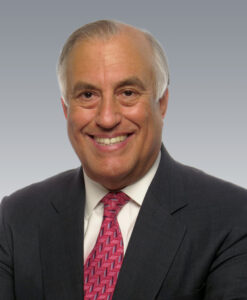Dr. Steven Reisman was an invited speaker at the F.B.I in Manhattan on June 30, 2010, to discuss heart attack prevention. As part of this lecture, he discussed the advantages of exercise in the relationship to general health and in particular, in the prevention of cardiac disease. One of the references Dr. Reisman used was an article in the Wall Street Journal from January 5, 2010 entitled “The Hidden Benefits of Exercise”.

The article described how moderate exercise can be extremely successful in the prevention of disease in general. This includes bolstering the body’s immune system, improving the body’s response to the influenza vaccine, and making the individual less prone to viral infections. Dr. Reisman discussed the advantage of regular exercise including something as simple as a thirty to forty-five-minute brisk walk daily five times a week which has been shown to have a positive effect. The article described how individuals who undergo this type of program can reduce the number of sick days up to 50% compared to sedentary subjects. Inactivity can pose a significant risk to one’s health contributing to heart disease, diabetes, hypertension, cancer, depression, arthritis, and osteoporosis. In relation to heart disease, studies have shown that exercise can lower blood pressure, reduce bad cholesterol, and decrease the incidence of diabetes.
There are guidelines developed by the Department of Health and Human Services and available at www.health.gov/paguidelines. A survey conducted by the American College of Sports Medicine and American Medical Association found that only four out of ten doctors talk to their patients about the importance of exercise. Dr. Reisman, a сardiologist in NYC stated that at the New York Cardiac Diagnostic Center diet and exercise in the prevention of heart disease are important features of all patient interaction. Muscle-strengthening activities two or more days a week are also suggested along with aerobic exercise.
Early detection of high blood pressure, elevated cholesterol, and diabetes can be easily determined on a simple nearby cardiology office visit with a basic blood test along with a basic history and physical examination.

Dr. Steven Reisman is an internationally recognized cardiologist and heart specialist. He is a member of the American College of Cardiology, American Heart Association, and a founding member of the American Society of Nuclear Cardiology.
Dr. Reisman has presented original research findings for the early detection of "high risk" heart disease and severe coronary artery disease at the annual meetings of both the American College of Cardiology and the American Heart Association. Dr. Reisman was part of a group of doctors with the Food and Drug Administration who evaluated the dipyridamole thallium testing technique before the FDA approved it.
Dr. Steven Reisman's academic appointments include Assistant Professor of Medicine at the University of California and Assistant Professor at SUNY. Hospital appointments include the Director of Nuclear Cardiology at the Long Island College Hospital.



